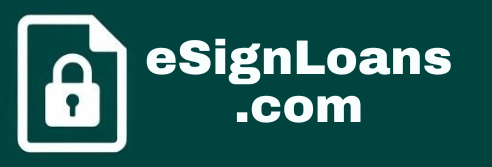Using a Personal Loan to Finance an Elective Procedure
Introduction
Elective procedures, ranging from cosmetic surgeries to dental implants, can significantly enhance one’s quality of life. However, these procedures often come with a hefty price tag, and insurance rarely covers them. For those without sufficient savings, financing becomes a necessity. One of the most viable options is a personal loan. But is it the right choice? This article explores the benefits, risks, and best practices for using a personal loan to fund an elective medical procedure.
Understanding Elective Procedures
Elective procedures refer to medical treatments that are not urgent or life-threatening. They are performed by choice rather than necessity. Examples include:
- Cosmetic Surgeries (rhinoplasty, liposuction, facelifts)
- Dental Work (implants, veneers, braces)
- Vision Correction (LASIK surgery)
- Fertility Treatments (IVF, egg freezing)
- Weight Loss Procedures (gastric bypass, lap band surgery)
These procedures can be costly, making financing a critical consideration.
Why People Opt for Elective Procedures
The decision to undergo an elective procedure is often personal and varies by individual. Some common motivations include:
✔ Enhancing physical appearance and confidence
✔ Improving health and well-being
✔ Correcting congenital conditions or previous injuries
✔ Increasing career opportunities (e.g., dental work for professionals in public-facing roles)
Personal Loan for Elective Procedure: The Available Options
There are several ways to pay for elective medical procedures:
- Out-of-Pocket Payments: Best for those with sufficient savings
- Medical Credit Cards: Offer promotional interest-free periods but come with high interest rates after expiration
- Payment Plans Through Providers: May have limited availability and high fees
- Medical Loans: Designed specifically for healthcare expenses
- Personal Loans: Offer flexibility, competitive rates, and fixed monthly payments
Why Use a Personal Loan for an Elective Procedure?
A personal loan can be an attractive financing option because it offers:
✔ Fixed Interest Rates: Predictable monthly payments
✔ Lump Sum Disbursement: Full cost coverage upfront
✔ No Collateral Required: Most personal loans are unsecured
✔ Flexible Use: Can be used for multiple medical expenses
Eligibility Criteria for a Personal Loan
Lenders typically consider:
✅ Credit Score: Higher scores get better rates
✅ Income Stability: Proof of a steady job or income source
✅ Debt-to-Income Ratio: Lower ratios indicate better repayment capacity
Pros and Cons of Using a Personal Loan for Elective Surgery
| Pros | Cons |
|---|---|
| Predictable monthly payments | Interest costs increase total expense |
| No need to use savings | Requires a good credit score for low rates |
| Competitive interest rates | Late payments affect credit score |
| Can cover the full cost | Adds to overall debt load |
Tips for Getting the Best Interest Rate on a Personal Loan
- Check your credit score before applying
- Compare multiple lenders
- Consider a co-signer for better terms
- Opt for a shorter loan term if possible
Alternatives to Personal Loans for Elective Procedures
If a personal loan doesn’t fit your financial situation, consider:
- Crowdfunding platforms (GoFundMe, Kickstarter)
- Employer-sponsored medical loans
- Negotiating payment plans with providers
FAQs
Is a personal loan better than a credit card for financing an elective procedure?
Yes, in most cases, personal loans offer lower interest rates and fixed payments, making them a more stable financing option.
Will taking out a personal loan affect my credit score?
Yes, both positively (if paid on time) and negatively (if missed payments occur).
What credit score do I need for a personal loan?
Generally, a score of 670 or higher qualifies for good rates, but some lenders offer loans to those with fair credit.
Can I get a personal loan with bad credit?
Yes, but interest rates will be significantly higher. Consider improving your credit score before applying.
Are medical loans different from personal loans?
Yes, medical loans are specifically designed for healthcare expenses and may offer better terms for medical borrowers.
Conclusion
Using a personal loan to finance an elective procedure can be a wise financial decision if planned responsibly. Understanding the terms, comparing lenders, and ensuring affordability are key to making the right choice. Before committing, assess all available options to determine the best approach for your needs.

+ 1.528684 BTC.GET - https://graph.org/Payout-from-Blockchaincom-06-26?hs=59112433a789bc149ae88fd3eaba1c99&